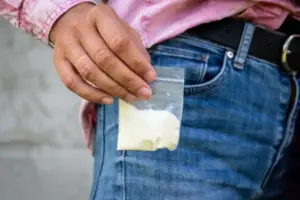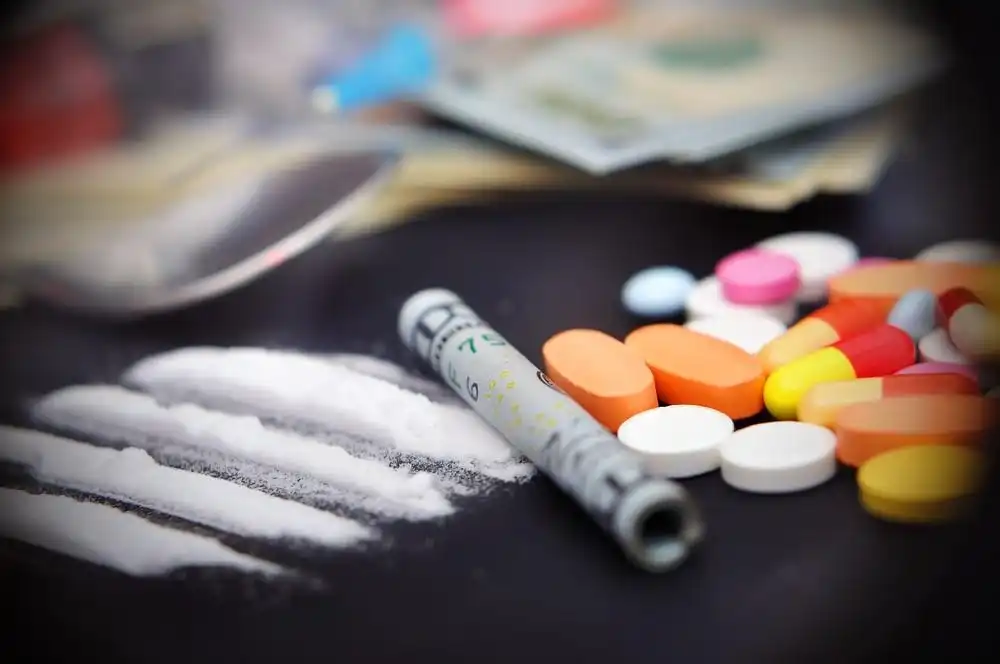Addressing Public Health Drug Crisis in Denver

The city of Denver is currently facing a significant drug crisis, which poses a grave threat to public health. This escalating issue demands immediate attention and effective action. Addressing the drug crisis requires a comprehensive approach that encompasses various strategies. Implementing harm reduction programs is crucial in minimizing the risks associated with drug use and preventing further harm to individuals and communities.
Furthermore, it’s important to make sure that people who are fighting addiction can easily get the help they need. Programs that help with recovery from substance abuse should be improved to give individuals the skills to beat addiction and become a part of society again.
Community groups also have a big job in making people aware of the problem and creating a caring community. When everyone works together to support those struggling with drug addiction, Denver can move closer to solving this serious public health issue.
The Growing Drug Crisis in Denver
Denver is dealing with a major drug problem right now. There has been a quick rise in drug-related issues, like overdoses and drug crimes. Illegal drugs like opioids and methamphetamines are easy to find, and that’s making drug abuse and addiction more common in the city. This crisis is affecting not just people and families, but it’s also putting a lot of pressure on the healthcare system and the police.
To effectively address this growing issue, a comprehensive approach is essential. This approach should encompass prevention, treatment, and harm reduction strategies. Key steps include increasing funding for addiction treatment programs that cater to substance use disorders and expanding access to life-saving medications like naloxone.
Moreover, public health efforts must be intensified. This includes implementing evidence-based public health approaches that understand and address the social determinants contributing to the crisis. For instance, factors such as economic instability, lack of education, and social isolation often play a significant role in substance abuse.
Most of the people facing this problem need more than just regular healthcare. People who make policies, healthcare workers, and community groups should work together to find answers. These answers should not only stop drug abuse but also deal with the reasons it happens. When everyone works together, it can help make the drug crisis in Denver less bad and make the community healthier and better.
Implementing Harm Reduction Programs
Implementing harm reduction programs is crucial in addressing the public health drug crisis in Denver. Needle exchange programs can help prevent the spread of diseases like HIV and hepatitis among injecting drug users. Safe injection sites provide a supervised environment for drug consumption, reducing overdose deaths and providing access to resources for individuals struggling with addiction. Additionally, ensuring widespread access to Naloxone, an opioid overdose reversal medication, can save lives and serve as a vital tool in harm reduction efforts.
Needle Exchange Programs
Denver is taking proactive measures to address the public health drug crisis by implementing needle exchange programs. These programs aim to reduce the spread of bloodborne diseases, such as HIV and hepatitis C, among injection drug users. Here are three reasons why needle exchange programs are crucial in combating the drug crisis:
- Disease prevention: By providing clean needles and syringes to drug users, needle exchange programs help prevent the transmission of bloodborne infections. This not only protects the health of individuals but also reduces the burden on the healthcare system.
- Harm reduction: Needle exchange programs offer a safe and supportive environment for drug users. They provide access to resources such as counseling, education, and referrals to substance abuse treatment, promoting healthier behaviors and reducing drug-related harm.
- Community safety: By removing used needles from circulation, these programs help prevent accidental needlestick injuries among the general public, including law enforcement officers, sanitation workers, and community members. This contributes to a safer and cleaner environment for everyone.
Implementing needle exchange programs is a crucial step towards addressing the public health drug crisis in Denver.
Safe Injection Sites
Safe injection sites are an effective approach to implementing harm reduction programs for addressing the public health drug crisis in Denver. These sites provide a safe and supervised environment for individuals to consume drugs, reducing the risk of overdose and the transmission of diseases such as HIV and hepatitis C.
By offering sterile equipment and medical supervision, safe injection sites can prevent overdose deaths and provide opportunities for individuals to access healthcare and substance abuse treatment. Additionally, these sites can help reduce public drug use and related issues such as discarded needles and public intoxication.
Studies have shown that safe injection sites can save lives and reduce healthcare costs, making them a crucial component of comprehensive harm reduction strategies in Denver and other cities facing similar drug crises.
Access to Naloxone
One important aspect to consider in addressing the public health drug crisis in Denver is ensuring access to naloxone, a life-saving medication that can reverse opioid overdoses. Naloxone, also known by its brand name Narcan, is an opioid antagonist that quickly binds to opioid receptors in the brain, blocking the effects of opioids and restoring normal breathing patterns. To implement harm reduction programs and increase access to naloxone, the following steps should be taken:
- Education and training: Provide education and training to healthcare professionals, first responders, and community members on recognizing opioid overdoses and administering naloxone.
- Distribution programs: Establish naloxone distribution programs in pharmacies, healthcare facilities, and community centers to make it easily accessible to those who may need it.
- Over-the-counter availability: Advocate for naloxone to be available over the counter without a prescription, making it accessible to anyone who may encounter an opioid overdose.

Increasing Access to Treatment Services
How can we effectively enhance access to treatment services to address the public health drug crisis? Increasing access to treatment services is crucial in tackling the drug crisis in Denver. One approach is to expand the availability of treatment facilities and programs across the city, ensuring that individuals in need have easy access to the help they require.
This can be achieved by partnering with healthcare providers, community organizations, and government agencies to establish additional treatment centers and increase the capacity of existing ones. Furthermore, it is essential to reduce barriers to treatment, such as cost, by implementing affordable or subsidized options for those who cannot afford it.
Additionally, promoting awareness and education about treatment services and resources can help individuals overcome the stigma associated with seeking help and encourage them to access the necessary support. By focusing on improving access to treatment services, Denver can make significant progress in addressing the public health drug crisis.
Rehabilitation Programs for Substance Abuse
Rehabilitation programs for substance abuse play a crucial role in addressing the public health drug crisis in Denver. These programs are designed to help individuals overcome their addiction, regain control of their lives, and reintegrate into society. Here are three key aspects of rehabilitation programs that contribute to their effectiveness:
- Comprehensive Treatment: Rehabilitation programs offer a range of services tailored to meet the specific needs of each individual. This may include detoxification, individual and group therapy, vocational training, and aftercare support.
- Holistic Approach: Effective rehabilitation programs address not only the physical aspect of addiction but also the psychological, emotional, and social factors that contribute to substance abuse. They provide counseling and support to help individuals develop healthy coping mechanisms and address underlying issues.
- Long-term Support: Rehabilitation programs recognize that recovery is an ongoing process that requires ongoing support. They provide aftercare services, such as relapse prevention planning, sober living arrangements, and support groups, to help individuals maintain their sobriety and prevent relapse.
Community Organizations’ Role in Raising Awareness
Groups in the community are really important in making people aware of the public health drug problem in Denver. These groups are close to the people who live here, so they can teach and involve them in learning about the risks of drug abuse and where to get help.
These groups can put together community events, workshops, and campaigns to tell a lot of people about the drug problem. They can also give people a chance to talk about their own stories and what they’ve been through. This can make the problem more real and stop people from treating those with addiction unfairly.
Moreover, community organizations can collaborate with healthcare professionals, law enforcement agencies, and government bodies to develop comprehensive strategies and initiatives to combat drug abuse. Their efforts in raising awareness are instrumental in preventing drug addiction, promoting early intervention, and supporting individuals on the path to recovery.
Providing Support for Drug Addiction
Community organizations play a crucial role in providing support for individuals struggling with drug addiction in Denver. These organizations serve as a lifeline for those battling addiction, offering a range of services to help individuals on their path to recovery. Here are three key ways in which community organizations support individuals facing drug addiction:
- Counseling and Therapy: Community organizations often provide counseling and therapy services that aim to address the underlying causes of addiction and help individuals develop coping mechanisms and strategies for recovery.
- Support Groups: Support groups offer individuals a safe and non-judgmental space to share their experiences, gain support from peers who understand their struggles, and receive guidance from trained facilitators.
- Access to Resources: Community organizations connect individuals with resources such as treatment centers, detoxification programs, healthcare providers, and other support services, ensuring that individuals have access to the help they need.
Conclusion
Addressing the drug crisis in Denver requires a multi-faceted approach that includes implementing harm reduction programs, increasing access to treatment services, and providing rehabilitation programs for substance abuse. Additionally, community organizations play a crucial role in raising awareness and providing support for individuals struggling with drug addiction. By collectively working towards these goals, it is possible to mitigate the public health impacts of the drug crisis and improve the well-being of the Denver community.
